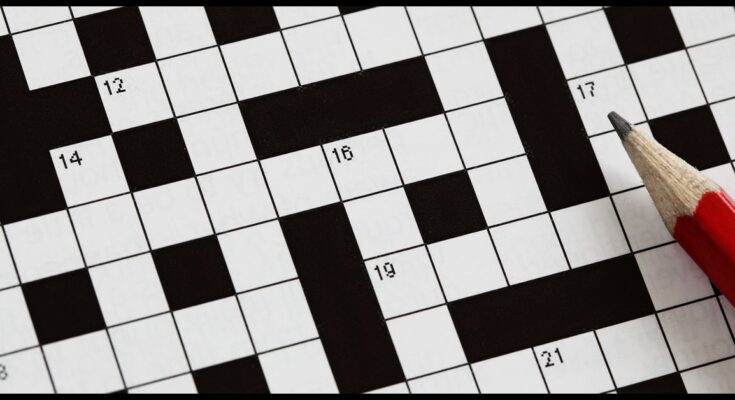Introduction to Lead into Lingo
Have you ever encountered the crossword clue “Lead in to Lingo” and found yourself puzzled? You’re not alone. Understanding such clues can be challenging yet rewarding, especially for crossword enthusiasts. This article delves into the intricacies of the clue, providing insights and techniques for mastering it.
Historical Context
Evolution of Crossword Puzzles
Crossword puzzles have been a popular pastime for over a century. They first appeared in the early 20th century and quickly became a staple in newspapers and magazines. The New York Times, for instance, has been publishing daily crossword puzzles since 1942, becoming a gold standard in the puzzle world.
Role of Crossword Clues in Puzzle Solving
Crossword clues are the backbone of these puzzles, guiding solvers towards the correct answers. They come in various forms, each requiring different levels of knowledge and skills to decipher.
Linguistic Analysis
Breakdown of “Lead into Lingo”
The clue “Lead into Lingo” suggests a word that precedes “lingo” to form a common term or phrase. For example, “lingo” could be preceded by “argot,” forming “argot lingo,” though this specific combination may not always be familiar.
Common Patterns and Themes in Crossword Clues
Crossword clues often follow patterns, making it easier for seasoned solvers to identify potential answers. “Lead in to” clues typically require knowledge of prefixes, word formations, or everyday expressions.
Types of Crossword Clues
Direct Clues
Direct clues are straightforward and lead to the answer without any tricks. For example, “A color (4)” would directly hint at “blue” or “pink.”
Indirect Clues
Indirect clues require some lateral thinking or knowledge of wordplay. For instance, “Prank (3)” might lead to a “joke” or “gag.”
Cryptic Clues
Cryptic clues are the trickiest, involving anagrams, puns, or hidden meanings. An example could be “Time to go back inside and organize (6),” hinting at an anagram.
Techniques for Solving Crossword Clues
Pattern Recognition
Recognizing patterns is crucial. For “Lead into Lingo,” knowing prefixes like “pro-,” “tech-,” or “jargon-” can help.
Anagram Solving
Anagrams rearrange letters to form the answer. For cryptic clues, this technique is invaluable.
Synonym Identification
Identifying synonyms is often crucial. If the clue is “Happy (5),” possible answers include “merry” or “elated.”
Case Study: “Lead into Lingo” Clue
Examples from Popular Crosswords
In the New York Times crossword, “Lead into Lingo” could have solutions like “argot,” “jargon,” or “slang.”
Analysis of Solutions
Analyzing past solutions helps understand common prefixes and terms used in crosswords, aiding in future puzzle-solving.
Comparative Table of Clue Types
| Clue Type | Features | Pros | Cons |
|---|---|---|---|
| Direct Clues | Straightforward, clear hints | Easy for beginners, quick solutions | Less challenging, limited complexity |
| Indirect Clues | Require lateral thinking, wordplay | More engaging, enhances problem-solving | Enriching, deep engagement |
| Cryptic Clues | Involves anagrams, hidden meanings | Highly rewarding, deep engagement | Very challenging, steep learning curve |
Advantages of Crossword Puzzles
Cognitive Benefits
Crossword puzzles enhance cognitive abilities, improving memory and problem-solving skills.
Vocabulary Expansion
Regular solving expands vocabulary, introducing new words and phrases.
Entertainment Value
Crossword puzzles are a fun and engaging way to pass the time, and they provide a sense of accomplishment upon completion.
Disadvantages of Crossword Puzzles
Potential for Frustration
Difficulty in solving can lead to frustration, especially for beginners.
Time-Consuming Nature
Some puzzles require a significant time investment, which may not be feasible for everyone.
Learning Curve
There’s a steep learning curve for understanding complex clues and cryptic puzzles.
Famous Crossword Puzzle Creators
Historical Figures
Figures like Arthur Wynne, who created the first crossword puzzle, have left a lasting legacy in the puzzle world.
Modern Influencers
Today’s puzzle creators like Will Shortz have continued to innovate and challenge solvers with creative clues and themes.
Crossword Puzzles in Popular Culture
Appearances in Movies and TV Shows
Crossword puzzles often appear in media, showcasing characters solving or being challenged by them, adding to their cultural significance.
Crossword References in Literature
Books and novels frequently reference crosswords, highlighting their role in intellectual and recreational activities.
Technological Advances in Crossword Puzzles
Online Platforms
Websites like the New York Times and The Guardian offer daily puzzles accessible to a global audience.
Crossword Apps
Apps like Crosswords With Friends provide mobile access to puzzles, making them easy to solve.
Interactive Puzzles
Interactive puzzles enhance engagement, offering hints and instant feedback on answers.
Crossword Puzzle Strategies
Starting with Easy Clues
Begin with the most straightforward clues to build momentum and confidence.
Filling in the Gaps
Use known answers to fill in intersecting words, making it easier to guess the remaining clues.
Using References
Avoid using dictionaries or thesauruses for difficult clues, especially in the beginning.
Expert Insights
Quotes from Renowned Puzzle Makers
“Crossword puzzles are a journey into the puzzle creator’s mind.” – Will Shortz.
Tips from Experienced Solvers
“Always look for the simplest explanation first; sometimes the answer is more straightforward than you think.” – Rex Parker..
Conclusi..
Understanding and solving crossword puzzles, especially clues like “Lead into Lingo,” can be a rewarding experience. These puzzles not only provide entertainment but also enhance cognitive skills and vocabulary. Anyone can improve their puzzle-solving abilities by employing various strategies and learning from experts.
FAQs
What does “Lead into Lingo” mean in a crossword clue?
“Lead into Lingo” suggests a word that precedes “lingo” to form a common term or phrase, such as “jargon.”
How can beginners get better at solving crossword puzzles?
Beginners should start with easier puzzles, use references, and practice regularly to improve their skills.
What are some popular crossword puzzle apps?
Popular apps include Crosswords With Friends, New York Times Crossword, and Puzzazz.
Are there any online communities for crossword enthusiasts?
Yes, websites like Reddit’s r/crossword and forums like Crossword Fiend offer vibrant communities for enthusiasts.
How do crossword puzzles benefit mental health?
Crossword puzzles enhance cognitive functions, improve memory, and provide a sense of achievement, positively impacting mental health.





